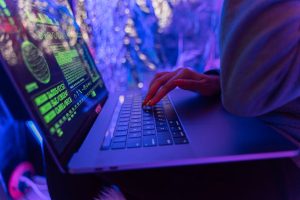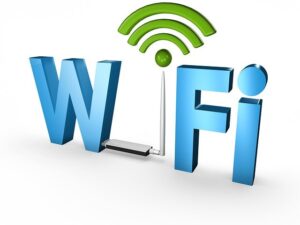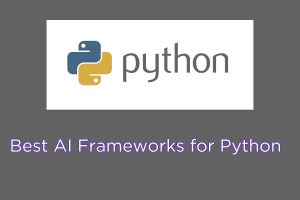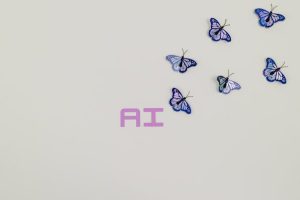The Role of AI, ML, and IoT in Digital Transformation

AI, ML, and IoT are very commonly heard and used by businesses from all over the world. But what is their actual impact on the increasing digital transformation? We are discussing that in this blog.
Within the last few years, the digital revolution has taken over enterprises from all over the world by storm. Now, the race to grow virtually is being participated by companies from all over the world, and to leverage competitors in this race, new supporting technologies are coming into existence as well. Among growing enterprise technologies, Artificial Intelligence (AI), Machine Learning (ML), and the Internet of Things (IoT) are the most commonly heard terms among businesses these days.
By combining these three technologies, businesses are improving their quality of services, work efficiency, productivity, and security. Furthermore, in this blog, we are shedding some light to understand how AI, ML, and IoT are pushing and helping the digital transformation among businesses which is spreading like a wildfire. So, stay with us until the end of the blog to have some crucial insights.
Role of Artificial Intelligence and Machine Learning
To understand the specific importance of AI, ML, and IoT technologies, it is crucial to understand their specific roles in digital transformation. So, let’s discuss the contribution of AI and ML first, and then we will move to IoT.
- Improved quality of services and products
AI-supported automated systems are replacing humans in many processes such as production, operations, etc. The reason is the reduced probability of human error and cost-effectiveness. ML is a part of AI which uses big data to find patterns and predict outcomes. To power any process with AI, developers feed systems huge chunks of data which is most of the time based on historical events. Historical and behavioral data helps AI in making decisions. For companies, AI is helping them in making improvements in the decision-making process, solving customer problems faster, and making automation more efficient.
With increased digitalization, businesses have also become exposed to cyberattacks. AI and ML, however, can use the historical data to recognize patterns of such attacks and take measures on time. In many cases, businesses deploy AI and ML-supported automated cybersecurity algorithms on their servers. These systems scan connected devices and servers regularly to keep an eye on any invasive cyberattacks. If found, these systems can also take steps to stop such attacks and generate alerts.
- Improved device management
Connected devices have to remain in proper working order for any process to remain smooth. Thus, AI and ML algorithms are deployed to scan and predict device failures. Also, many organizations use AI to automate maintenance scheduling so devices can be kept in their best health.
- Predictive analytics
Businesses are using AI and ML to make better corporate decisions with the help of the predictive analytics feature of these technologies. By finding patterns AI and ML can together predict outcomes for specific events. Predictive analytics is used in many parts of our daily lives today including to decide flight fares, predict the weather, predict traffic conditions, etc.
- Personalization
The quality of services provided by companies is majorly affected by the level of personalization they can offer. Companies like Amazon and Nextflix are using the personalization advantages of AI and ML to offer customers options that suit their tastes and preferences. This is done after tracking the user behavior and data generated through this behavior is used by ML to predict what users might like.
Role of IoT in the digital transformation of businesses
The Internet of things (IoT) is a technology-dependent on sensors. These sensors are either paired up with other devices or work individually to share and receive data with each other. There are plenty of use cases of IoT that has supported businesses in transforming themselves.
- Wireless connectivity
Today, apart from smartphones, there are plenty of other devices as well that support wireless communication. You can use voice commands, remotes, or smartphones to control smart TVs, ACs, car locks, etc. These possibilities came into existence due to IoT technology.
- Remote work
Covid has already proved that remote work culture can be a permanent solution and save people from unnecessary travels. Thus, companies are using IoT sensors to remotely control and monitor business operations. Enterprise IoT is helping them in establishing systems that they can control from anywhere and use to keep a check on the status of business processes. Be it manufacturing, packaging, or any other process, IoT sensors are able to support even heavy work in the 21st century.
- Improved shipment systems
IoT has helped businesses in adapting smarter shipment networks. Now, instead of having to manually check containers to ensure the health of shipments, IoT sensors can record data such as temperature, location, etc in real-time and provide the required data to enterprises. It has resulted in reducing the delivery time and reducing wastages of products due to delays, especially in the pharmaceutical industry. Businesses are also able to track products in real-time to keep clients informed.
Conclusion
Digital transformation is an ongoing process. Throughout past years, we have seen many developments like listing businesses on search engines and providing their information on map applications. However, new technologies bring new opportunities for businesses. For example, many businesses are onboarding Metaverse to have a competitive advantage.






